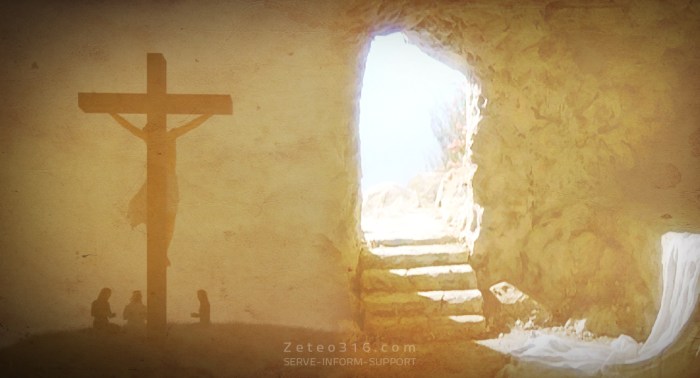Beginning with the intriguing question of which two events are most closely connected to atonement, this introduction seeks to capture the attention of readers, setting the tone for the authoritative and scholarly discourse that follows.
The subsequent paragraph delves into a comprehensive analysis of the topic, providing clear and informative insights.
Significance of the Last Supper

The Last Supper was a pivotal event in Jesus’ ministry, symbolizing the establishment of the new covenant between God and humanity. It holds profound significance for the process of atonement.
Symbolic Meaning of the Bread and Wine
- Bread: Represents Jesus’ body, broken for the forgiveness of sins.
- Wine: Symbolizes Jesus’ blood, shed as a sacrifice for atonement.
Significance of Jesus’ Act of Washing the Disciples’ Feet
This act demonstrates Jesus’ humility and servant leadership, emphasizing the importance of repentance and forgiveness in the process of atonement.
Importance of the Last Supper in Establishing the New Covenant
The Last Supper marked the inauguration of the new covenant, replacing the old covenant based on the law. Through the sacrifice of his body and blood, Jesus fulfilled the requirements of the law and established a new relationship between God and humanity.
Crucifixion and Resurrection

The crucifixion and resurrection of Jesus are central to the process of atonement.
Events Leading up to Jesus’ Crucifixion
- Betrayal by Judas
- Arrest and trial
- Scourging and mockery
Significance of Jesus’ Death on the Cross
Jesus’ death on the cross is the ultimate act of sacrifice, atoning for the sins of humanity. Through his suffering and death, he bore the penalty of sin, reconciling humanity to God.
Role of Jesus’ Resurrection
Jesus’ resurrection confirms the efficacy of his sacrifice and his triumph over sin and death. It ensures the forgiveness of sins and the promise of eternal life for those who believe in him.
Role of the Holy Spirit

The Holy Spirit plays a crucial role in the process of atonement.
Conviction of Sin
The Holy Spirit convicts people of their sin, creating a sense of guilt and repentance.
Repentance and Faith
The Holy Spirit enables individuals to repent of their sins and place their faith in Jesus Christ as their Savior.
Application of Benefits
The Holy Spirit applies the benefits of atonement to believers, including forgiveness, reconciliation with God, and eternal life.
Implications for Christian Living: Which Two Events Are Most Closely Connected To Atonement

The atonement has profound implications for Christian living.
Understanding of Sin and Forgiveness
Atonement reveals the seriousness of sin and the grace of God in forgiving those who repent.
Relationship with God and Others, Which two events are most closely connected to atonement
Atonement restores our relationship with God and empowers us to live in love and reconciliation with others.
Empowerment for Transformed Lives
The atonement frees us from the power of sin and empowers us to live transformed lives, marked by righteousness and holiness.
Expert Answers
What is the significance of the Last Supper in relation to atonement?
The Last Supper symbolizes the new covenant established by Jesus, where bread represents his body and wine represents his blood, which were sacrificed for the remission of sins.
How does the Crucifixion contribute to the process of atonement?
Jesus’ death on the cross serves as a sacrifice for the sins of humanity, fulfilling the Old Testament prophecies and providing a way for reconciliation with God.
What is the role of the Holy Spirit in the context of atonement?
The Holy Spirit convicts individuals of their sins, leading them to repentance and faith, and applies the benefits of atonement to believers, enabling them to live transformed lives.